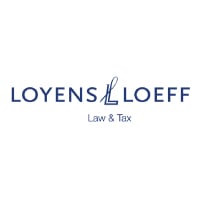
General counsel and company secretary | DAF Trucks



Floortje Jansen
General counsel and company secretary | DAF Trucks
What are the projects that you are most proud of working on over the past 12 months?
As DAF, we find ourselves in a dynamic time. From an environmental perspective, we are fully engaged in the transition to zero-emission trucks. While there are indications that electric cars are the future for passenger vehicles, this is only partially the case for trucks. The power grid is overloaded, creating a hurdle for companies to support environmental steps for their own sites and creating even more uncertainty in relation to the network of public charging infrastructure for trucks that is required for the transition of transport companies to zero-emission trucks. The average weight of the trucks will increase due to battery packs, and especially in long-distance transport, trucks will not return to the home base to charge, which makes charging on the road necessary. The commercial prices for public charging will have an impact on the prices of our groceries in supermarkets. Manufacturers have e-trucks available, but the market is still reluctant and therefore very limited.
As manufacturers, we need to develop various alternative drivetrains to offer the most optimal solution for every application. This is complex and requires significant investments, while the future of transportation depends on how the government supports both the infrastructure and the transition in the transport sector. We currently see a focus with regulations addressing manufacturers, while the bottleneck for introduction of zero emission vehicles is elsewhere.
Legal is involved in many aspects of this transition, including the transformation of the supply chain, the development of new products for customers, contracts for new transportation solutions, permits for new factories, and strategic decision-making. Furthermore, we are fully immersed in the digital revolution. Modern trucks are computers on wheels. We are developing various new products and services around data, such as fleet management systems and predictive maintenance. We are actively working on implementing data regulations, e-commerce, and data services. In short, these are more dynamic times than ever before.
What do you think are the most important attributes for a modern in-house counsel to possess?
To be successful as an in-house counsel, it is important to possess the following attributes: drive and focus combined with flexibility and good communication.
As in-house counsel your role is more than just an advisor. You work together with the business to find a solution and you are involved in the implementation of the solution itself. I see the in-house counsel much more as a business partner or facilitator, working together with the business towards a result.
As in-house counsel you should have a strong fundament of knowledge and expertise to use as much flexibility to translate legal issues into practical solutions for the business and enough strength and credits to keep the boundaries of what is legally incorrect/impossible. In addition, it is of utmost importance to be able to set priorities right. This means that you should accept that other, less urgent matters may not receive attention for a certain period. Therefore, perfectionism and indecisiveness are not ideal attributes. You must be able to bear the responsibility of not making mistakes and setting the right priorities.
Based on your experiences in the past year, are there any trends in the legal or business world that you are keeping an eye on, of which you think other in-house lawyers should be mindful?
I see that the focus on regulations changed significantly. Previously, the regulator was focused on establishing rules for relationships between companies/parties. Now the focus is much more on regulating the internal organisation within companies. This includes compliance regulations, regulations around corporate social responsibility (CSRD, CSDDD (ESG)), as well as data regulations. The changed focus on regulations alters the role of in-house counsel: it is shifting from an advisor involved in contracts to a project manager involved in the implementation of regulations and processes. The risk-based approach of new regulation shifts the internal focus from what needs to be done to what ‘risk-based approach’ meets stakeholders’ expectations. Finally, regulations often contain open norms and are not entirely clear. The focus on regulating companies, combined with an increased and prominent claim culture, wherein US ‘claim vehicles’ entered Europe because they see a new evolving marking in Europe to gain profit from lawsuits and settlements, will change the legal practice in the coming years.